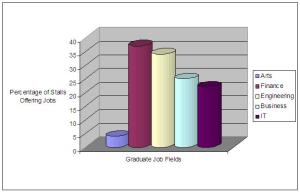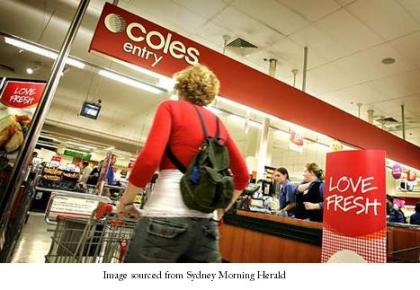Filed under: Entertainment, Sport | Tags: beenleigh, golden roughs, liquorice short shorts, roller derby, roller skates, sun state roller chicks
Almost a thousand people turned out to watch the Liquorice Short Shorts and Golden Roughs face off against each other in last weekend’s quarterly roller derby match at Beenleigh Sports Arena.
The aim of roller derby is simple – both teams form a pack and skate around the rink, two ‘jammers’ lag behind, and then attempt to break through the pack. The first one through scores a point, every lap they make through scores an additional point.
The game is so dangerous the teams must fork out for an ambulance presence at every match, with injuries including a double break of the fibula and tibia during one game, and a shattered humerus during a training session.
“You have to be pretty tough mentally and physically, you’ve got to be ballsy enough to get out there and have a go” said Kate McGain, captain of the Golden Roughs.
“I’ve not always been drawn to mainstream sport, it’s a sport where you can be physically aggressive but still feminine,” says Licorice Short Shorts player Lizzie Wilbourne, ie ‘Annie Seizure’.
The game, which started off from humble origins in 2007 has grown a ‘bloodthirsty cult following’ according to Kate.
The sport has rapidly grown in popularity, from 100 viewers a game and one league to 1000 viewers a game and three leagues including Sun State Roller Girls.
But while league president, Nicky Ennever aka Knockout Nicky says she loves the ‘technical game play of the sport’ some spectators are not convinced.
Alasdair Young, who watched the Saturday night match described the girls as ‘slow’ and their performance ‘lacklustre’.
“It would be better if the ring was bigger, the girls were faster and the refs could actually keep score,” said Alasdair.
Filed under: Entertainment, Events | Tags: blia, brisbane, buddhism, buddhist festival, chenrezig nun's community, chinese, mahayana, southbank
Buddha’s Birthday the ‘Chinese Ekka’
Visitors of the Buddha’s birthday celebrations held at Southbank last weekend have dubbed the festival the ‘Chinese Ekka’ amid concerns it focussed too heavily on Chinese Buddhism and was too commercial.
The Buddha’s Light International Association of Queensland held the festival, which had about 170, 000 visitors, between the 1st and 3rd of May.
On their website, the association said: “BLIA is not the organization of a certain sect, temple, or person. It is an organization that belongs to all the Buddhists in the world.”
But volunteer for the BLIA, Frank Helden, said the festival mainly promoted the Mahayana strand of Buddhism, which is very different from the Havada strand practised in Sri Lanki and Thailand.
Chamith Weerasakaa, a Sri Lankan Buddhist said, “I didn’t go because it’s a Chinese festival. I’m of the Havada faith.”
The festival included Chinese lion and dragon dances, a Chinese Cultural Arts area and a fireworks display.
Concerns were also raised over the commercial aspect of the festival, which showcased many non-Buddhist food stalls, merchandise shops and ‘one dollar for one wish’ monuments to Buddha.
Kimberley Menz, who attended the festival on Sunday said, “I really didn’t like it. I don’t believe that all the shops and phoney ‘make a wish’ stalls were in the true spirit of Buddhism. I felt like I was more at the markets in Chinatown than I was at a spiritual celebration”.
Tibetan nun from the Chenrezig Nun’s community, Tenzin Tsering said while she heard several people raise concerns over the commercialism of the festival, she thought naming the festival ‘the Chinese Ekka’ was ‘a little harsh’.
“Everyone’s entitled to their own opinion. I personally see the festival as an opportunity to build relationships, harmony and mutual respect,” said Tsering.
Filed under: State and Local News
A university student and four members of her youth group escaped death on the eve of Easter Sunday when their car careened into the University of Queensland’s Gatton campus sign.
Miss Gibson was driving home from Easterfest when she accidentally turned off to the Gatton McDonalds store too early and her car. travelling at 90 kilometres an hour, spun out of control on the wet road.
“We’re sure that if the sign hadn’t been there and she crashed into the massive tree behind it, or if she’d hit the metal pylons which held the sign up they would have died,” said Miss Gibson’s mother Michelle.
Coles stores across Australia are rolling out a ‘no bags check’ policy this month, a bid to appear more ‘customer friendly’.
Workers will not be able to check customer’s bags in the store, or when they leave the store, regardless of shoplifting suspicions.
Coles Fairfield manager, Peter Johnston says: “We are trialling a new system of plain clothes loss recovery officers monitoring stores, as well as security scanners at the front of stores.”
But one employee has already questioned the policy, saying: “Short of walking out with a trolley full of goods, you could pretty much steal anything from our stores. Only DVD’s and batteries have the metal reactor tags which activate the scanner alarms”.
 Griffith’s Careers fair represented mostly science and business jobs this year, leaving arts out in the cold.
Griffith’s Careers fair represented mostly science and business jobs this year, leaving arts out in the cold.
Accounting, economics and commerce dominated the fair, with 37 per cent of stalls offering jobs for finance graduates.
34 per cent of stalls wanted engineering graduates, 25 per cent wanted business degrees, 22 per cent wanted IT graduates and only 4 per cent of stalls specifically asked for arts students to apply.
Head of Griffith’s Careers and Employment Division, Tony Lyons, says: “Students from non-business disciplines can still ‘market’ themselves into these organisations even if they are not specifically advertising for their discipline”
University students are participating in unconventional clinical trials in bids to make extra cash.
University of Queensland students, Aneiki De brincat and Keira Mcdowell participated in over twenty trials combined, including a virtual colonoscopy, recieving 500 shocks from wire electrodes under the skin and trialling malaria and flu vaccines.
Ms McDowell, said it was a creative way of making money but: “I don’t see it as a sustainable method of income, and I would prefer traditional work, if I could find it.”
She said the electric test made her feel nauseous, she had great difficulty walking up and down stairs for 2-3 days afterwards, and only received $75 for her 5 hours of participation.
|
What’s the Cost of a Guinea Pig? |
|
|
Trial |
Cash |
|
Blood Pressure Overnight Survey |
$925 |
|
Flue Vaccine |
$250 |
|
Electrical Charge Therapy |
$15 / hour |
With unemployment figures rising, university students are turning to participating in clinical trials ranging from malaria vaccine tests, virtual colonoscopies and electric shock treatments in a bid to make some extra cash.
University of Queensland student, Aneiki De brincat says she participated in 6 trials over a two and a half year period, and UQ student Keira Mcdowell says she participated in one physiotherapy trial, one drug trial and over ten psychological research projects in two years, including learning how to perform a virtual colonoscopy.
Ms De brincat said: “I like these trials because they’re a quick way of getting money, while also helping people. Most of the time it is tax free, and you can choose when you come in.”
Ms De brincat earned $995 for two, two night stays in a quarantine ward to test blood pressure medication.
“We had to be wheeled around in wheel chairs so we didn’t pass out and hurt ourselves. It was like a warped Big Brother situation”.
Ms McDowell, said it was a creative way of making money but, “I don’t see it as a sustainable method of income, and I would prefer traditional work, if I could find it.”
Ms Mcdowell warns there can be negative side effects from the tests, saying she participated in a trial involving wire electrodes being inserted into her back muscles which were then stimulated by a magnetic ‘zap’ 500 times.
The test made her feel nauseous, she had great difficulty walking up and down stairs for 2-3 days afterwards, and she only received $75 for her 5 hours of participation.
Ms De brincat also had bad experiences, saying she was once severely affected from a malaria vaccine and was rushed to hospital, although the research group did pay for her medical expenses.
Research is usually conducted by universities, hospital research groups like Qpharm and private drug manufacturing companies testing vaccines and medication.
Griffith University’s Career’s Fair has this week reflected what many arts students have feared – jobs in art degrees are few and far between while science and business reign supreme.
Accounting, economics and commerce dominated the recruitment process, with 37% of the 74 stalls offering jobs for graduates with those degrees.
34% of stalls sought after engineering graduates, 25% wanted business degrees, 22% wanted IT graduates and only 4% of stalls specifically encouraged arts students to apply for jobs with their companies.
The three stalls which sought after arts degrees were the Spinal Injuries Association, Queensland Audit Office, and the Department of Child Safety.
Griffith University’s Events Coordinator, Andrew Thrush, says that considering the biggest employers in the country are financial institutions, mining and construction companies, retail, science and education there are limited job opportunities for arts students.
Mr Thrush said he understood the lack of arts stalls because, while the university invites over three hundred companies, which cater for all of Griffith’s degrees, it was up to the individual companies to decide whether the fairs would benefit them, and whether their businesses needed to recruit.
However, head of Griffith’s Careers and Employment Division, Tony Lyons, says: “Students from non-business disciplines can still ‘market’ themselves into these organisations even if they are not specifically advertising for their discipline”
Senior Lecturer in the School of Humanities, Dr Amanda Howell, also denies claims that arts degrees are not career producing, saying that they are particularly useful when the economy is tough because BA graduates are equipped with field specific skills and knowledge, as well as many ‘generic’ skills useful in all industries.
Dr Howell said: “At the end of the day, finding a job always depends on the individual: how well she/he has used educational opportunities, how effective she/he is at looking for a job, and how well she/he has prepared for a job by acquiring experience.”
Filed under: University Matters
Improvements in technology lead to more jobs in journalism says ABC journalist Peter Mageros.
News providers are opening up more jobs in the journalistic sphere as the need for ‘online news rooms’ grows.
Mr Mageros points to his own work place, saying, “I just look at the ABC Online Newsroom, where I began with the ABC, and I see a workplace of about 50 or more journos who at one time didn’t exist”
“That’s in addition to the separate metropolitan and regional online positions that have been created in ABC newsrooms across the country.”
However, the jobs which online journalism generates also come with more pressure, including learning specialist skills and the demand for immediate news on the web, Mageros warns.
Filed under: World News
